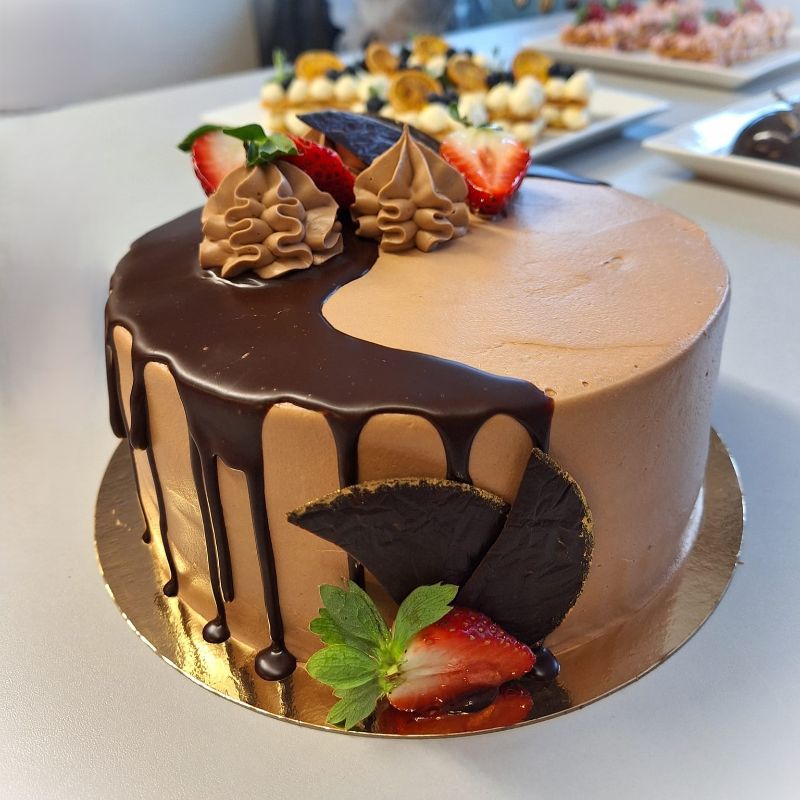Baker-confectioner
"A baker-confectioner needs skills in both baking and customer service. The range of bakery products is wide, which is why you need to know how to make lots of different products. Manual skills are essential in this work. You also need persistence and patience in my occupation. You need to be able to listen to customers' wishes and interpret them as accurately as possible to ensure that the product they order is what they actually want."

- Mia Nieminen
- Baker-confectioner in a company called Muta&Kakku.
- Self-taught with no training in the field.
- Five years of work experience in the field.
Briefly explain what you do for a living.
I work as a baker and confectioner in a small bakery: I bake bread and buns and make doughnuts, pastries, small cakes and other bakery products. Baking produces a lot of washing up, and it's my job to take care of it.
How have you ended up in the profession of your choice?
I had baked some cakes at home before I went to work in a café owned by somebody I knew, where I did all kinds of tasks. After that I ended up as a baker-confectioner in my current job.
Describe your typical working day or week.
When I come to work, I first check which products have been left to rise in the cold room and choose which ones I will start working on. Usually I put the pies into the oven first and start making different types of buns from a large batch of dough. I then leave rye loaves to rise and carry on with cakes. In the meantime I bake other products. The last ones to go into the oven are the doughnuts, after which I get ready for opening the café. I have a certain amount of freedom in my work, I get to decide which products I do overnight. For example, festive seasons affect the products I make.
What kind of work environment or working hours do you have?
My workplace is a small bakery which currently has four permanent employees. I only do night shifts because I study during the day.
What kind of competence or qualities are required in the profession?
A baker-confectioner needs skills in both baking and customer service. The range of bakery products is wide, which is why you need to know how to make lots of different products. Manual skills are essential in this work. You also need persistence and patience in my occupation.
You need to be able to listen to customers' wishes and interpret them as accurately as possible to ensure that the product they order is what they actually want. Having initiative and being able to work independently are also important.
What is the best thing about your profession?
The best thing about this work is its versatility and the fact that you can use your creativity when making baked goods.
What are the downsides of the profession or what seems challenging?
Night work is always challenging, of course. Sometimes it is frustrating that the baking ingredients do not always behave in the same way. Even if you have done the same thing numerous times, the end result varies. A hot summer can affect the products, for example.
What would you tell a person considering the profession of a baker-confectioner?
Especially in small bakeries, your working hours may stretch before and after your actual shift, and employees are expected to be flexible. You also need to be able to do a bit of everything in small bakeries and there are fewer machines, whereas in large enterprises, bakers can have precisely determined tasks and industrial machines at their disposal.
How do you see the future of your profession?
Today, people value handmade products more. On the other hand, even a minor economic downturn means that people have less money to spend. These are the first products that they cut back on.
The trends are also constantly changing in the confectionery sector, which I think is a good thing because it challenges the creativity of bakers.
